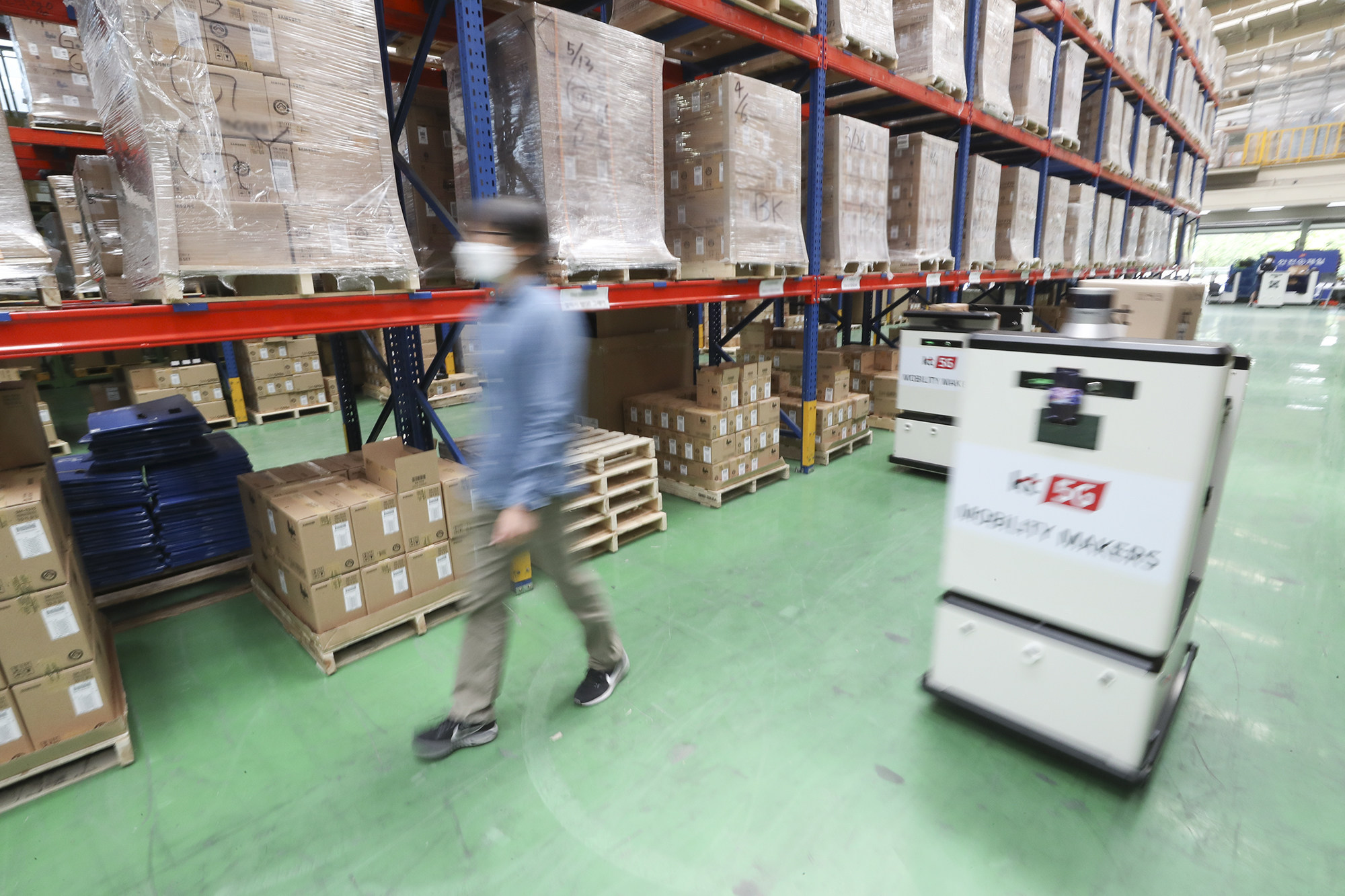KT launches 5G self-driving vehicles at its logistics center
Autonomous vehicles have been touted as one of 5G’s stand-out applications, and they are already appearing in factories around the world.

Get up to speed with 5G, and discover the latest deals, news, and insight!
You are now subscribed
Your newsletter sign-up was successful
Once you look beyond public roads, and consider industrial 5G use cases, autonomous vehicles are already being deployed in factories around the world, with KT – Korea’s largest telecommunications service provider – being the latest company to implement self-driving machines.
“In preparation for the post-COVID era, technologies to minimize person-to-person contact are increasingly demanded throughout industries."
Choi Kangrim, KT.
KT has introduced 5G self-driving carts at its logistics center, enabling a nearly 50 percent reduction in employees’ travel range for loading and transporting inventory. The new system is the first use of next-generation smart logistics vehicles in the Korean communications industry, with two types of 5G self-driving carts – “NarGo” and “TarGo” – being employed in collaboration with Twinny, a company specializing in indoor autonomous robots and online platforms.
“In preparation for the post-COVID era, technologies to minimize person-to-person contact are increasingly demanded throughout industries,” said Choi Kangrim, Head of KT’s Connected Car Biz Center. “By applying AIV service based on our advanced communication networks and platforms in a wider scope of industries and leading relevant technological advancement, we at KT will do our utmost to help our customers enjoy the benefits in their everyday lives.”
The rise of IIoT
A recent report from Nokia and ABI Research highlighted the importance of IIoT (industrial internet of things), and found that 63% of respondents said they needed to improve existing infrastructure, and 51% saying that they would use automation with robotics to achieve new levels of employee productivity. And the report also found that a large proportion (84%) are considering the deployment of their own local private wireless network in their manufacturing operations, with IIoT initiatives being a primary focus (41%).
KT incorporated its autonomous intelligent vehicle (AIV) service to NarGo and Targo. AIV service is an integrated control system that processes instructions and assesses operating conditions by using pre-installed maps and real-time information on automated carts. It also facilitates latency-free collection and analysis of operational data as well as statistics compilation. And KT says that loading cellphones and other items for transport requires 47 percent less travel range by employees, when using 5G vehicles at KT’s Seobu Distribution Center.
The self-driving logistics vehicles and AIV service are based on KT’s integrated mobility platform, which it calls ‘5G Mobility Makers’. The platform sits at the core of KT’s connected car services, which feature automated driving control, and the ability to collect and analyze data produced by different vehicles.
Vehicles can be controlled and monitored remotely, and in the wake of the global Covid-19 pandemic, KT believes that reducing person-to-person contact will be an integral part of how companies operating going forward, with KT saying that it plans to provide 5G autonomous carts and control systems for small-scale logistics operations at hospitals, libraries and various other industrial sites.
Get up to speed with 5G, and discover the latest deals, news, and insight!
- Discover the best 5G networks in the UK and US
- Get your hands on the hottest 5G phones
- Millimeter wave: the secret sauce behind 5G
- The complete guide to 5G security
- We reveal the latest 5G use cases
- Discover the truth behind 5G dangers
- 5G towers: everything you need to know
Dan is a British journalist with 20 years of experience in the design and tech sectors, producing content for the likes of Microsoft, Adobe, Dell and The Sunday Times. In 2012 he helped launch the world's number one design blog, Creative Bloq. Dan is now editor-in-chief at 5Gradar, where he oversees news, insight and reviews, providing an invaluable resource for anyone looking to stay up-to-date with the key issues facing 5G.

